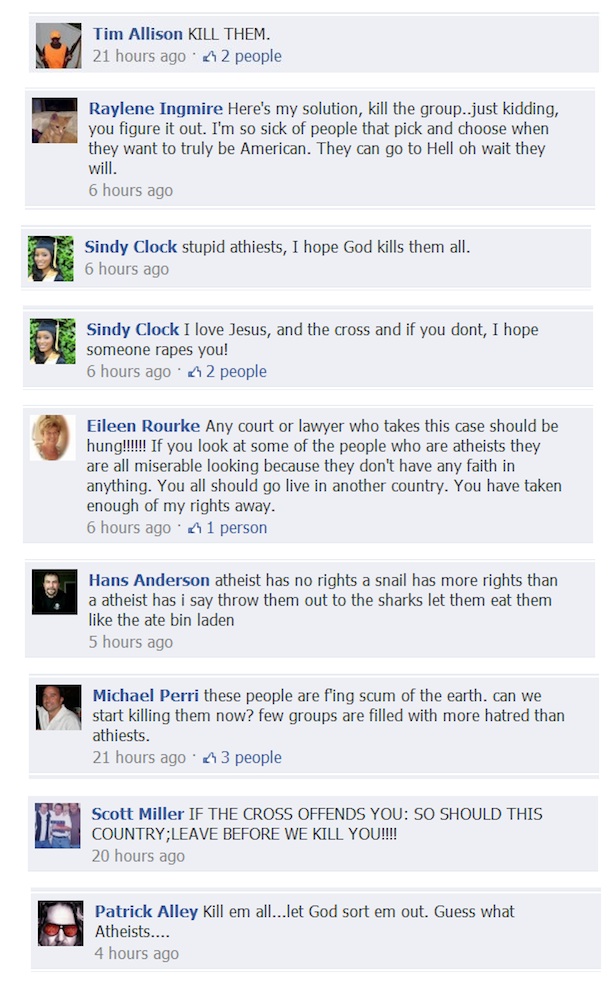At what point does content on social media sites become too offensive? Does the social network have an obligation to protect its users from extreme topics of conversation? Or should a social network never pull controversial content, as it is tantamount to limiting free speech?
These are some questions that went through my mind while browsing through all the tweets and various opinion pieces concerning a specific Twitter trending topic that appeared over the weekend. That trend became incredibly controversial almost immediately after it landed on the top trends list.
The hashtag #reasonstobeatyourgirlfriend sparked a flurry of protest, many calling for @twitter to do something about the offensive trend. Most asked Twitter to remove it from the trends lists altogether.
Is there any content on Twitter or Facebook that you think deserves to be removed? Let us know in the comments.
The tweets containing the hashtag ranged from jokes like “…because she won’t make you a sandwich” and “because she killed your kid and got away with it” to rebukes such as “NEVER any reason” and “this is the most disgusting #TT I’ve ever seen.”
Of course, all of the people tweeting about the hashtag being horrible helped to keep it on the trending topic list, but anyways…
By Sunday night, the controversial hashtag was no longer on the list of trending topics either worldwide or for the United States. As of Monday morning, the hashtag wasn’t on the trending topic lists for any of the specific cities either. New tweets containing the hashtag were no longer coming in at a fast clip either – maybe a couple a minute at most.
Did Twitter remove the hashtag at the behest of the group of outraged users? Or did the topic just run its course and die out in popularity?
Here’s the graph of 24 hour activity surrounding the hashtag, provided by Trendistic. it seems to suggest that the chatter surrounding the hashtag died down pretty quickly.
But Monday afternoon, Twitter users who found the hashtag offensive continued to employ strategies to combat the trend. One way was through an online petition that counted retweets as signatures. Hosted on act.ly, here’s what the retweet looked like.
According to the site, it got somewhere around 2,500 retweets.
Some just asked @twitter directly to delete the trend from the list. Others attempted to counteract the trend by starting new hashtags like #violenceisnotfunny and #140reasonsdvisnotajoke.
But a sizable minority lamented people’s inability to take a joke.
Look people, “Reasons to beat your girlfriend” isn’t a clever hashtag. It didn’t produce very funny tweets. #DescribeYourPenisWithAMovieTitle – now there’s a winner. But #reasonstobeatyourgirlfriend is far from the most offensive thing I’ve seen on Twitter.
Twitter is a wonderful resource for lightning-fast, real time communication. Its openness and free flow of information make it great. Does Twitter want to get into the usual business of censoring trending topics?
Reports of Twitter-trend censorship aren’t new. Back in 2010, people comlained that Twitter removed #WikiLeaks trends out of the topic list. Apparently, #WikiLeaks was still seeing a flood of tweets rolling it but some users noticed that it had mysteriously vanished from the list of trends. Twitter later denied that they had pulled the trend.
Other hashtags like #NoGod have also received attention after users claimed that Twitter had removed them from trends.
If you want to get technical about this, #reasonstobeatyourgirlfriend doesn’t break any official Twitter regulations. On their about trending topics help page, Twitter lists the abuses that could result in punishment –
Adding one or more topic/hashtag to an unrelated Tweet in an attempt to gain attention in search.
Repeatedly Tweeting the same topic/hashtag without adding value to the conversation in an attempt to get the topic trending/trending higher.
Tweeting about each trending topic in turn in order to drive traffic to your profile, especially when mixed with advertising.
Listing the trending topics in combination with a request to be followed.
Tweeting about a trending topic and posting a misleading link to something unrelated.
Nothing about offensive trends here. And on the official Twitter Rules page, the only content guideline that pertains is “You may not publish or post direct, specific threats of violence against others.” The hashtag in question is definitely not a specific threat. The Twitter content rules say nothing about offensive trends.
So it could be a judgment call for Twitter. Should they intervene in a situation like this?
As long as Twitter exists, offensive trends will as well. Last month the controversy was #RapistSongs and now we have #reasonstobeatyourgirlfriend. Next month there could be something even more offensive.
Things like rape and domestic violence are terrible whenever they happen to whomever they happen to – but a joke is a joke. Twitter can’t make a habit of removing trending topics just because they ruffle some feathers. If that’s what people are talking about the most, then it should show up on the list. Offensive speech is protected speech when it comes to the law, and Twitter should follow that recommendation. Can you imagine the backlash if Twitter began to censor topics regularly?
What about Facebook? They don’t have a “trending topics” list but that hasn’t stopped them from inviting controversy over offensive content.
Just last week the debate emerged surrounding Holocaust denier groups on the on the social network. Should Facebook remove those groups? Should all speech be free, even that kind that is absolutely despicable to most of us?
Another huge controversy hit Facebook when Jewish activists demanded that they take down a page entitled “Third Palestinian Intifada.” That page called for a specific date to begin an uprising against Israel. Comments and videos also called for the killing of Jews. Facebook eventually pulled the page, but was later sued for not taking it down fast enough.
Here, the lines become even blurrier. Is free speech still free speech when it advocates actual, specific violence? The law would say no. A person can’t advocate that harm be done to another, specific person. To what extent should social networks police this type of content?
And what about when the offensive content isn’t simply words anymore, but videos? YouTube has a policy against aggressively shocking content, but that policy was tested when they pulled an animal cruelty video uploaded by the activist group Mercy For Animals.
The video, which shows the horrible treatment of cows at a slaughterhouse, was later reinstated by YouTube after people protested the removal. This begs the question: What do social networks do about offensive content when it is also informative or documentary in nature?
The two issues when it comes to social media and censorship are whether offensive content is protected free speech and even if it is, should social networks model their policies on our constitutional definition of free speech?
Even if a horrible Twitter trend or a unsettling Facebook page counts as free speech, does the social network have the obligation to let it stand? Or should they make the decision to remove it based on enough public outcry?
I think the removal of controversial content by social media sites starts us down a slippery slope. What do you think? Let us know in the comments.































